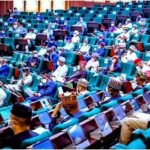The e-RIGHTS project partners have expressed concern over recent internet disruptions in Nigeria, which have occurred alongside the ongoing #EndBadGovernance protests.
In a statement signed by Engr. Yunusa Zakari Ya’u of the Centre for Information Technology and Development (CITAD), the impact of these disruptions on democratic rights is highlighted.
Engr. Ya’u noted that Nigeria, a signatory to various human rights treaties including the African Charter on Human and Peoples’ Rights (ACHPR) and the International Covenant on Civil and Political Rights (ICCPR), is obligated to uphold the rights to freedom of expression, assembly, and association. These rights are also protected in Chapter Four of the Nigerian Constitution.
“The internet has become essential for exercising these rights. Disrupting internet services impedes citizens’ ability to access information, engage in public discourse, and exercise their civic rights,” the statement says.
The e-RIGHTS project partners, including CITAD, Spaces for Change (S4C), and Lawyers Without Borders, along with civil society organizations in Nigeria, have condemned internet disruptions and the suppression of dissent. They have urged the Nigerian government to end these disruptions and respect citizens’ constitutional rights.
The statement also references a legal precedent set by the ECOWAS Court of Justice, which ruled against Nigeria’s Twitter ban. The Court’s decision highlighted that such bans are unconstitutional and infringe on rights to freedom of expression and access to information.
The e-RIGHTS project continues to advocate for digital rights in Nigeria despite ongoing challenges.





